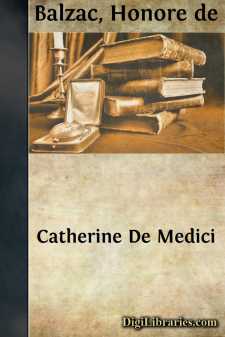Categories
- Antiques & Collectibles 13
- Architecture 36
- Art 48
- Bibles 22
- Biography & Autobiography 815
- Body, Mind & Spirit 144
- Business & Economics 28
- Children's Books 18
- Children's Fiction 14
- Computers 4
- Cooking 94
- Crafts & Hobbies 4
- Drama 346
- Education 58
- Family & Relationships 59
- Fiction 11833
- Games 19
- Gardening 17
- Health & Fitness 34
- History 1378
- House & Home 1
- Humor 147
- Juvenile Fiction 1873
- Juvenile Nonfiction 202
- Language Arts & Disciplines 89
- Law 16
- Literary Collections 686
- Literary Criticism 179
- Mathematics 13
- Medical 41
- Music 40
- Nature 179
- Non-Classifiable 1768
- Performing Arts 7
- Periodicals 1453
- Philosophy 65
- Photography 2
- Poetry 896
- Political Science 203
- Psychology 44
- Reference 154
- Religion 515
- Science 126
- Self-Help 85
- Social Science 82
- Sports & Recreation 34
- Study Aids 3
- Technology & Engineering 59
- Transportation 23
- Travel 463
- True Crime 29
Our website is made possible by displaying online advertisements to our visitors.
Please consider supporting us by disabling your ad blocker.
Catherine De Medici
by: Honore de Balzac
Categories:
Description:
Excerpt
INTRODUCTION
There is a general cry of paradox when scholars, struck by some historical error, attempt to correct it; but, for whoever studies modern history to its depths, it is plain that historians are privileged liars, who lend their pen to popular beliefs precisely as the newspapers of the day, or most of them, express the opinions of their readers.
Historical independence has shown itself much less among lay writers than among those of the Church. It is from the Benedictines, one of the glories of France, that the purest light has come to us in the matter of history,—so long, of course, as the interests of the order were not involved. About the middle of the eighteenth century great and learned controversialists, struck by the necessity of correcting popular errors endorsed by historians, made and published to the world very remarkable works. Thus Monsieur de Launoy, nicknamed the "Expeller of Saints," made cruel war upon the saints surreptitiously smuggled into the Church. Thus the emulators of the Benedictines, the members (too little recognized) of the Academie des Inscriptions et Belles-lettres, began on many obscure historical points a series of monographs, which are admirable for patience, erudition, and logical consistency. Thus Voltaire, for a mistaken purpose and with ill-judged passion, frequently cast the light of his mind on historical prejudices. Diderot undertook in this direction a book (much too long) on the era of imperial Rome. If it had not been for the French Revolution, criticism applied to history might then have prepared the elements of a good and true history of France, the proofs for which had long been gathered by the Benedictines. Louis XVI., a just mind, himself translated the English work in which Walpole endeavored to explain Richard III.,—a work much talked of in the last century.
Why do personages so celebrated as kings and queens, so important as the generals of armies, become objects of horror or derision? Half the world hesitates between the famous song on Marlborough and the history of England, and it also hesitates between history and popular tradition as to Charles IX. At all epochs when great struggles take place between the masses and authority, the populace creates for itself an ogre-esque personage—if it is allowable to coin a word to convey a just idea. Thus, to take an example in our own time, if it had not been for the "Memorial of Saint Helena," and the controversies between the Royalists and the Bonapartists, there was every probability that the character of Napoleon would have been misunderstood. A few more Abbe de Pradits, a few more newspaper articles, and from being an emperor, Napoleon would have turned into an ogre.
How does error propagate itself? The mystery is accomplished under our very eyes without our perceiving it. No one suspects how much solidity the art of printing has given both to the envy which pursues greatness, and to the popular ridicule which fastens a contrary sense on a grand historical act....












